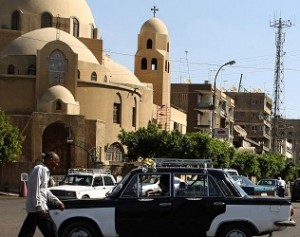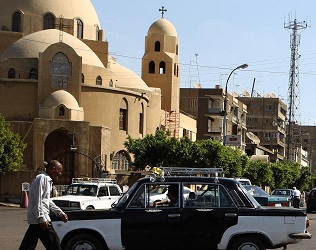
(AFP File Photo)
The Egyptian Initiative for Personal Rights (EIPR) criticised the Coptic Church for drafting a new statute for the election of the Coptic Pope and the Patriarch during “closed, non-transparent consultations” in a study published on Sunday.
“In the context of this trend toward monopolisation, the Holy Synod adopted a new statute for the election of the pope of Alexandria and the patriarch of the Holy See of St. Mark in an extraordinary session convened on 20 February 2014, headed by Pope Tawadros II,” EIPR said.
In a study titled “the Democracy of the Clergy,” EIPR commented on the proposed bylaws that are based on a narrow interpretation of Article 3 of the revised 2012 constitution.
Article 3 affirms the right of non-Muslim adherents of the revealed religions to choose their own spiritual leaders.
“The synod interpreted this provision as giving the church an exclusive right to draft the rules governing this selection process,” EIPR said.
The EIPR had earlier criticised Article 3 in a previous commentary on the proposed constitutional amendments for restricting individual freedoms in favour of religious institutions.
According to EIPR, the draft statute makes several discriminatory distinctions among Coptic citizens by narrowing the base of potential papal candidates and allowing members of the Holy Synod to form a candidate list. It also discriminates against electors on the basis of social origin, gives clerics wide berth to interfere in the selection of electors, and contains no guarantees for representation of women and the youth.
“The election or the selection of the Coptic Orthodox pope is no longer an issue limited in its importance to the clergy,” said Ishak Ibrahim, an officer for EIPR’s Freedom of Religion and Belief Programme.
“Rather, it is a public Christian and national matter that requires a set of rights and standards to guarantee the independence of the religious establishment,” Ibrahim added.
Ibrahim further explained that the process of decision making within the religious establishment should not be subject to the interference of outside parties or a higher authority.
“At the same time, the church itself should not be allowed to play an authoritarian role for its members… [as] in the end, this serves to protect freedom of religion and belief,” he said.


